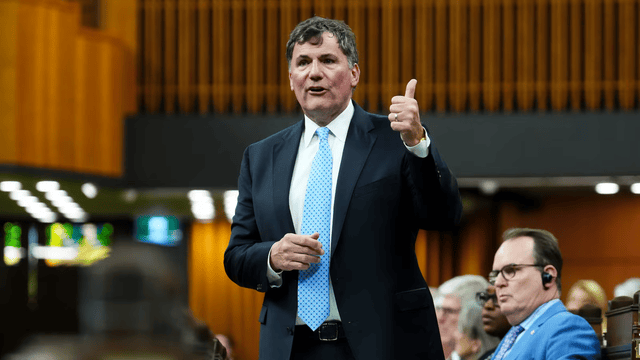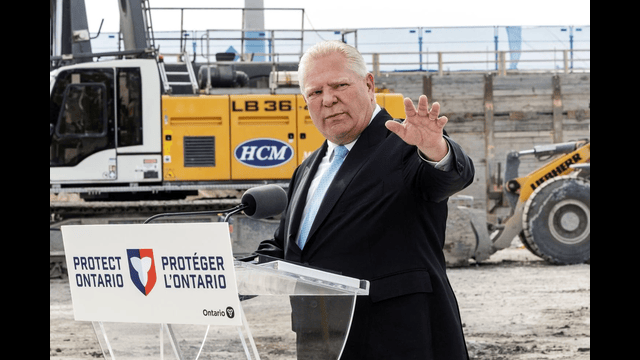
Conservative Leader Pierre Poilievre waves a document in the air as he rises during Question Period in the House of Commons on Parliament Hill in Ottawa on Wednesday, June 5, 2024. THE CANADIAN PRESS/Justin Tang
OTTAWA - On Tuesday, the House of Commons approved a motion to increase the proportion of capital gains taxed in Canada. The motion, backed by the Liberals, NDP, Bloc Québécois, and Greens, faced opposition from the Conservatives. The tax adjustment is set to take effect on June 25.
Finance Minister Chrystia Freeland, who included the measure in her recent federal budget, expressed satisfaction after the vote. She had challenged the Conservatives to oppose the motion, framing it as an issue of "generational fairness."
Prime Minister Justin Trudeau criticized the Conservatives, asserting that they were defending the interests of the wealthy. He argued that the tax adjustment was necessary to ensure fairness for all Canadians.
Conservative Leader Pierre Poilievre countered, warning that the tax increase would drive wealth out of Canada and hurt various sectors, including farming, small businesses, healthcare, and homebuilding. Poilievre claimed the tax hike would exacerbate existing challenges in these areas.
The Conservatives had not declared their position on the tax change until just before the vote. In their statement, they highlighted concerns about its impact on farmers, homebuilders, small business owners, and doctors. Poilievre criticized the tax change, calling it "insanity" given the current economic challenges.
Currently, Canadians pay tax on 50% of their capital gains. The new measure increases this to 66%, affecting corporations and individuals whose capital gains exceed $250,000 annually. Freeland emphasized that primary residences would remain exempt, aiming to balance the tax burden between wealthy Canadians and those with lower incomes.
Trudeau argued that the additional revenue from the tax would be used to invest in housing and provide opportunities for younger generations.
The International Monetary Fund (IMF) supported the capital gains tax change, stating it would not significantly impact investment or productivity growth. The IMF was optimistic about Canada’s economic outlook, despite concerns about high housing costs.
However, the Grain Growers of Canada expressed concern, noting that the tax hike would harm farmers' retirement plans and complicate the transfer of family farms. The Canadian Federation of Independent Business urged the government to delay the changes, fearing negative impacts on small business sales.
Bea Bruske, president of the Canadian Labour Congress, criticized Poilievre for opposing the motion, arguing that it favored the wealthy over ordinary workers.
The tax change is expected to raise $19 billion over five years, which Freeland said would enable Canada to make fiscally responsible investments in healthcare, housing, childcare, and dental care without increasing debt.















